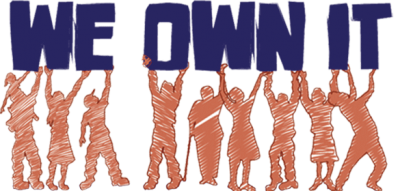By Josie Lee Varela

“WeOwnIt is a pro-member, pro-democracy organization that aims to build the foundation for a fair and just economic system.
As a graduate student living in Boone, N.C., working two jobs while keeping up with school work is not out of the norm for me. And I know I am not alone. Working one or more jobs is not out of the norm for most people I know.
Why is it that so many of our friends and family members work multiple jobs to provide for themselves and their families? Could it be due to an economic system that has failed to generate equitable benefits for all citizens? Possibly. Drew DeSilver, a senior writer for the Pew Research Center, published an informative article of the data behind wage and income inequality in the United States. The numbers are eye opening to say the least.
As DeSilver’s article notes, income inequality in the United States is at its highest since 1928, according to researcher and professor Emmanual Saez at The University of California-Berkeley. Additionally, the Organization for Economic Cooperation and Development found in a 2011 study that after accounting for taxes and transfers on national market incomes, the United States ranked second for income inequality in the 31 nations of the OECD, with Chile in first. According to DeSilver’s research, “median black household income was 59 percent of median white income in 2011” while in the 1960s, black household income was 55 percent of median white household income. In other words, the disparity has remained virtually the same for the past five decades.
Income inequality exists across income classes as well. The Appalachian region, for instance, has been characterized by pervasive economic distress for those who fall in the “lower-income” category. High energy costs and a lack of economic opportunity for folks in Appalachia are linked to income and wealth gaps seen across the country. What can be done to turn the problem of economic disparity around?
Our current economic system, though it may seem like it, is not set in stone. More cooperative economies are our chance to adapt and overcome the current failures of our system. The International Co-operative Alliance describes a cooperative as “an autonomous association of persons united voluntarily to meet their common economic, social, and cultural needs and aspirations through a jointly-owned and democratically-controlled enterprise.” Electric, consumer and worker co-ops, employee-owned companies and credit unions have been examples of new building blocks for an economic system that works for a majority of the people. While many cooperatives and advocates for cooperative economies exist in communities throughout the country, one new organization is taking that effort national.
The nonprofit WeOwnIt initiative was created in 2015. The initiative is meant to create a national network for cooperative members of all sectors to have the rights, education and tools to implement organizing practices. WeOwnIt is aiming for economic reform through the support and membership of organizations and individuals in order to reach communities’ common economic, social, and cultural needs.
Through strategies that combine planning expertise, organizational networking, targeted outreach and online organizing tools, WeOwnIt is a pro-member, pro-democracy organization that aims to build a new foundation for a fair economic system. This year, WeOwnIt is concentrating its efforts towards electric co-ops. Credit unions and the food co-op sector will also be a focus. To address social, economic, and environmental disparities, the WeOwnIt initiative has begun taking the first crucial steps toward a just and sustainable world, where members’ voices are heard loud and clear.
Learn more about the WeOwnIt initiative on their website.



Leave a Reply